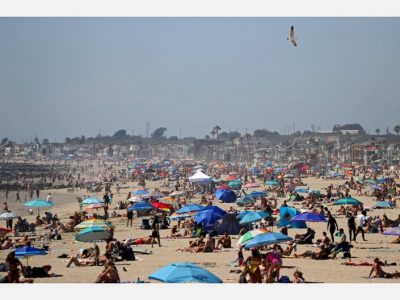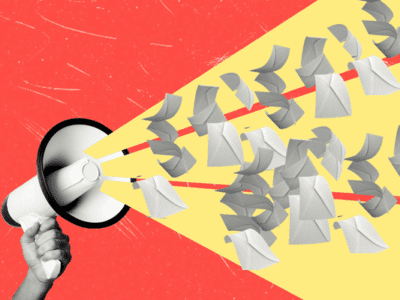Coastal Beaches, Public Access & the Pandemic
Important Legal & Policy Considerations in Closing Beaches to Protect Public Health

As part of America’s steadily growing restiveness over state and local shelter-in-place directives, the issue of government-mandated public beach closures has recently emerged as a particularly contentious issue. It’s especially prominent now, given that many coastal states are experiencing their first heat waves of 2020.
Many Americans are increasingly weary of and angry over public health-based mandates to stay home and away from popular recreational areas, including public beaches. In many cases, governors and local government leaders have formally closed coastal beaches, citing concerns that public congregating in these popular recreational areas will inevitably lead to increased COVID-19 exposures. That, in turn, has triggered public demonstrations, with protestors claiming that their constitutional rights are being violated. In some states, cautious governors are also battling with local officials who want their beaches reopened.
Do government leaders have the right to close beaches based on concerns about the epidemic and protecting public health? To what extent do members of the public currently have a legal right of public access to oceanfront areas? And are there any important public policy factors that our political leaders should consider in adopting beach closure rules in these extraordinary times?
In many jurisdictions, there is indeed a well-established legal right of public access to coastal areas. Oregon, New Jersey and Hawaii have the nation’s most sweeping public access laws. In California, promotion of public access to the coast is deeply embedded in state statutes, most prominently in California’s Coastal Act. Indeed, Californians have a state constitutional right of public access to coastal areas.
The key point–one lost on those who claim an unfettered right of public access to the coast–is that the public’s right of public access is subject to certain limits in all coastal states. Even in pre-epidemic times, courts have regularly acknowledged government’s authority to establish reasonable time, place and manner restrictions on the right of public access. Examples include nighttime curfews, bonfire bans, and beach closures designed to protect marine wildlife and sensitive coastal vegetation.
If governors, mayors and park commissions possess this authority in conventional times, they certainly have that power to temporarily close beaches in the face of an unprecedented public health emergency. So it’s my prediction that any government-ordered beach closure predicated on documented concerns over the spread of COVID-19 will be upheld by the courts.
And while some local government officials–under pressure from their residents and business owners to open beaches and tourist-serving local businesses–are advocating an end to beach closures, the ultimate authority rests with individual state governors. It’s incumbent on governors to be the “adults in the room” and balance understandable local desires for open beaches against legitimate, science-based public health concerns.
Recent public beach access controversies in Southern California graphically illustrate the legal and political implications of beach closures in the COVID-19 era. Moreover, they offer important lessons for state and local officials who are considering beach closures and openings.
Responding to California Governor Newsom’s pleas, Los Angeles and San Diego Counties have closed their public beaches to the public in order to prevent the types of large public gatherings that produce a breeding ground for the coronavirus. However, Orange County officials, bowing to constituents’ lobbying efforts, decided last week to reopen their beaches. The result: large crowds flocked to Orange County beaches, unable or unwilling to practice social distancing. (See the photo accompanying this post.) This past Thursday Governor Newsom, alarmed and frustrated by this development, invoked his emergency authority to override local officials and order Orange County beaches re-shuttered.
In response, the Orange County cities of Huntington Beach and Dana Point immediately sued Governor Newsom, challenging his legal authority to shut down county beaches over their objections. On Friday a state superior court judge denied–unsurprisingly–their request for an injunction barring enforcement of the Governor’s order. That’s a most welcome development.
So while the relevant legal principles and authority seem relatively straightforward, there are important policy lessons to be learned from the Orange County experience. First, the question of whether and how beachfront areas should be closed based on COVID-19 concerns is most appropriately made at the state level. To be sure, beach closures in heavily-populated coastal regions in Southern California are far more imperative than in rural, sparsely-populated areas on the state’s North Coast. But if public beaches are ordered closed in Los Angeles and San Diego Counties while remaining open in Orange County, is it any surprise that Southern Californians seeking relief from a weekend heat wave would flood Orange County beaches? After all, Southern California is a megalopolis of 20 million people stretching from Santa Barbara to the Mexican border. Making critical public health-based decisions on a county-by-county basis in this region is irrational and ineffective. State leadership is essential under these circumstances, as Governor Newsom apparently recognizes.
Second, while the public right of coastal access has its legal limits, some are advocating for a policy solution that is profoundly unfair and discriminatory: permitting coastal access by local coastal residents while barring those who don’t live in oceanfront communities from accessing beachfront areas. (I live in a coastal community, and am regularly confronted by fellow residents who rail against “outsiders” who “invade” our shoreline town; they believe that the town’s beaches should be ours alone to enjoy.) But this ignores another critical feature of the California Coastal Act and other relevant state laws: the coast belongs to all 40 million Californians–not just those fortunate to live there. Moreover, we have at least a moral obligation to share these exceptional coastal resources with visitors from other states and nations–at least when the epidemic makes it safe for all of us to do so. For far too long, coastal residents and developers in the United States considered the coast to be a private enclave rather than a public amenity accessible to all. Fortunately, that misguided view no longer prevails.
A broad right of public access to our coastal resources is firmly embedded in the laws of California and most coastal states in the U.S. That access is subject to reasonable limits–especially in the face of this extraordinary public health crisis. But in temporarily curtailing access to our precious public beaches to combat the current epidemic, we must be careful not to do so in a manner that excludes some Americans from those resources while only making them freely available to a privileged few.
Reader Comments
5 Replies to “Coastal Beaches, Public Access & the Pandemic”
Comments are closed.







I am not sure the governor made the right call. It’s an empirical question whether or not people could be trusted to safely go to the beach. And I think we will soon see more pressure once it is hot again. Remember that many of these people may not have AC at home, or feel able to pay for its use if they do have it.
Perhaps if special hand sanitizer stations were to be set up outside of the bathrooms, and people stood 6 feet apart in the lines for the stalls, and wore masks, and if we had security there to remind people, it could be done.
Or, are there just too many Southern Californians who like the beach for this to be possible? I agree that we probably don’t have enough people to go around measuring the space between towels. Perhaps I overestimate people’s self control?
I really don’t know what would be likely to happen. I think we should give guided access a try though. And if we don’t try it, I think lots of people will probably just go. It’s not more dangerous than going to the store, is it? And we have to do that just to eat. I think the governor is doing his best but I think he is probably wrong about the beaches. And of course … he’s a northerner.
Not that there is anything wrong with that.
Is anyone at the beach wearing a mask?
If people go to the beach and do not adhere to safe physical distancing, mask wearing and hand washing and Covid-19 cases spread then it makes it less safe for all of us to go to the few places that are essential. And yes, I can then choose to have groceries delivered and exercise indoors.
That said, I feel that people engaging in unsafe practices and defying Shelter in Place ordinances based on public health needs will infringe on my ability to enjoy the limited movement prescribed at this time.
This is a terrible disease. We don’t know what long term effects on the body will be. There will be a substantial cost to society in terms of losing talented, experienced contributors to our world with a rapid rise in cases.
I am grateful that Governor Newsom and many other state and local leaders took decisive action and are adhering to the goal of protecting the publics’ health.
This is definitely not about me, it’s about all of us.
Well I can’t speak for all beaches … but at the one I visited yesterday, people were observing physical distances and being polite and responsible.
I agree that this virus is very scary, and I am all in favor of having monitors on the beaches if needed. I think most people understand the importance of distancing.
Having said that … when it gets hot and stays hot, how the heck are we going to keep people cool? No malls, no movie theaters. This is going to be a real health problem too.
This is bull crap. People will not stand for it much longer. Science says 98% of people who get this will be fine. More people die from the flu. Of course these closures are unconstitutional. It is an absolute infringement on our liberties. The fearful should stay home and the fear mongers need to be removed from their positions of power that they are currently abusing. Newsom will get a wake up call next election, hopefully sooner.